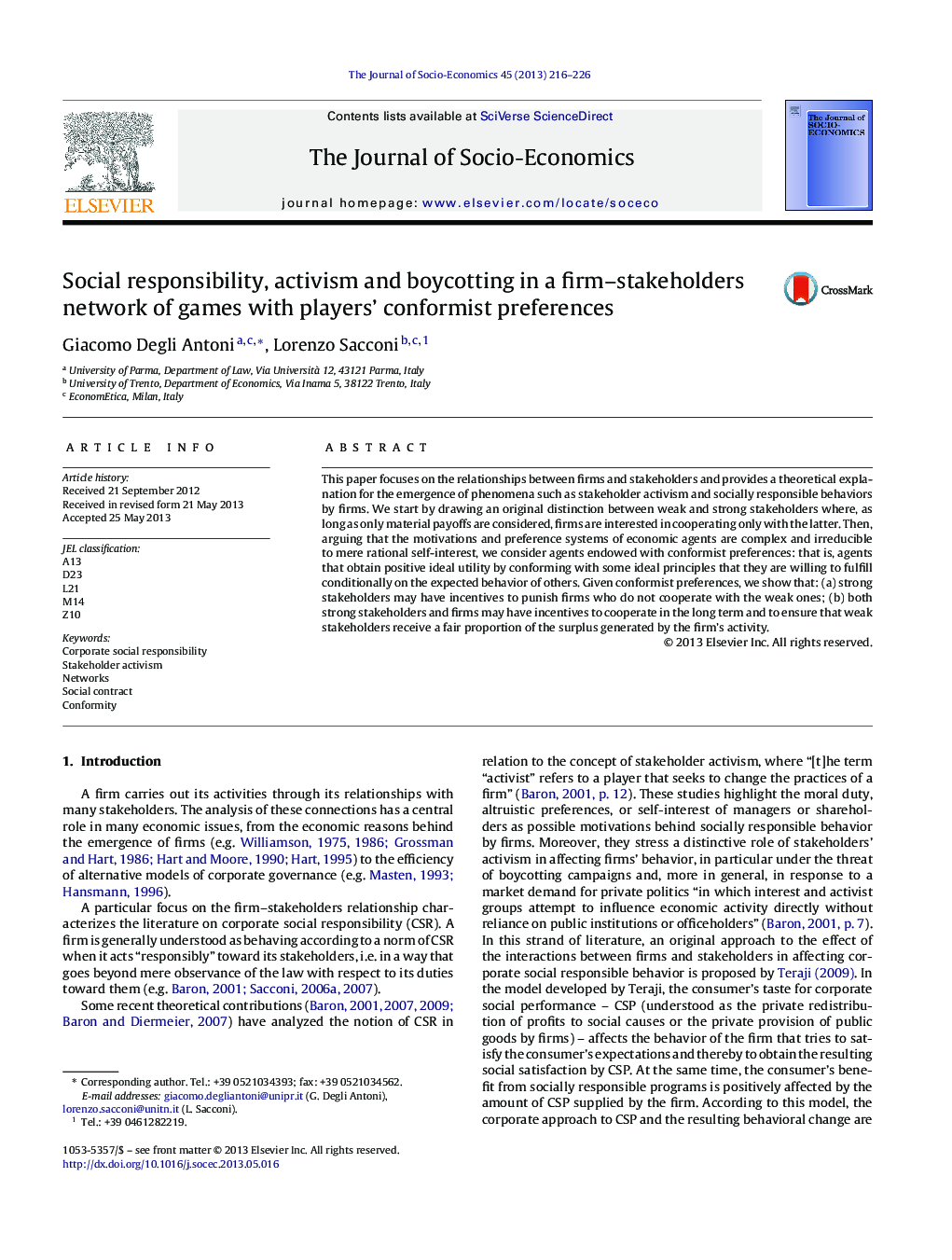| Article ID | Journal | Published Year | Pages | File Type |
|---|---|---|---|---|
| 970634 | The Journal of Socio-Economics | 2013 | 11 Pages |
•We focus on the firm–stakeholders relationship to analyze stakeholder activism and CSR.•We introduce an original distinction between weak and strong stakeholders.•We assume that agents are characterized by conformist preferences.•Agents obtain a positive ideal utility by conforming with some ideal principle of cooperation.•We discuss how conformist preferences may trigger the adoption of CSR norms by firms.
This paper focuses on the relationships between firms and stakeholders and provides a theoretical explanation for the emergence of phenomena such as stakeholder activism and socially responsible behaviors by firms. We start by drawing an original distinction between weak and strong stakeholders where, as long as only material payoffs are considered, firms are interested in cooperating only with the latter. Then, arguing that the motivations and preference systems of economic agents are complex and irreducible to mere rational self-interest, we consider agents endowed with conformist preferences: that is, agents that obtain positive ideal utility by conforming with some ideal principles that they are willing to fulfill conditionally on the expected behavior of others. Given conformist preferences, we show that: (a) strong stakeholders may have incentives to punish firms who do not cooperate with the weak ones; (b) both strong stakeholders and firms may have incentives to cooperate in the long term and to ensure that weak stakeholders receive a fair proportion of the surplus generated by the firm's activity.
